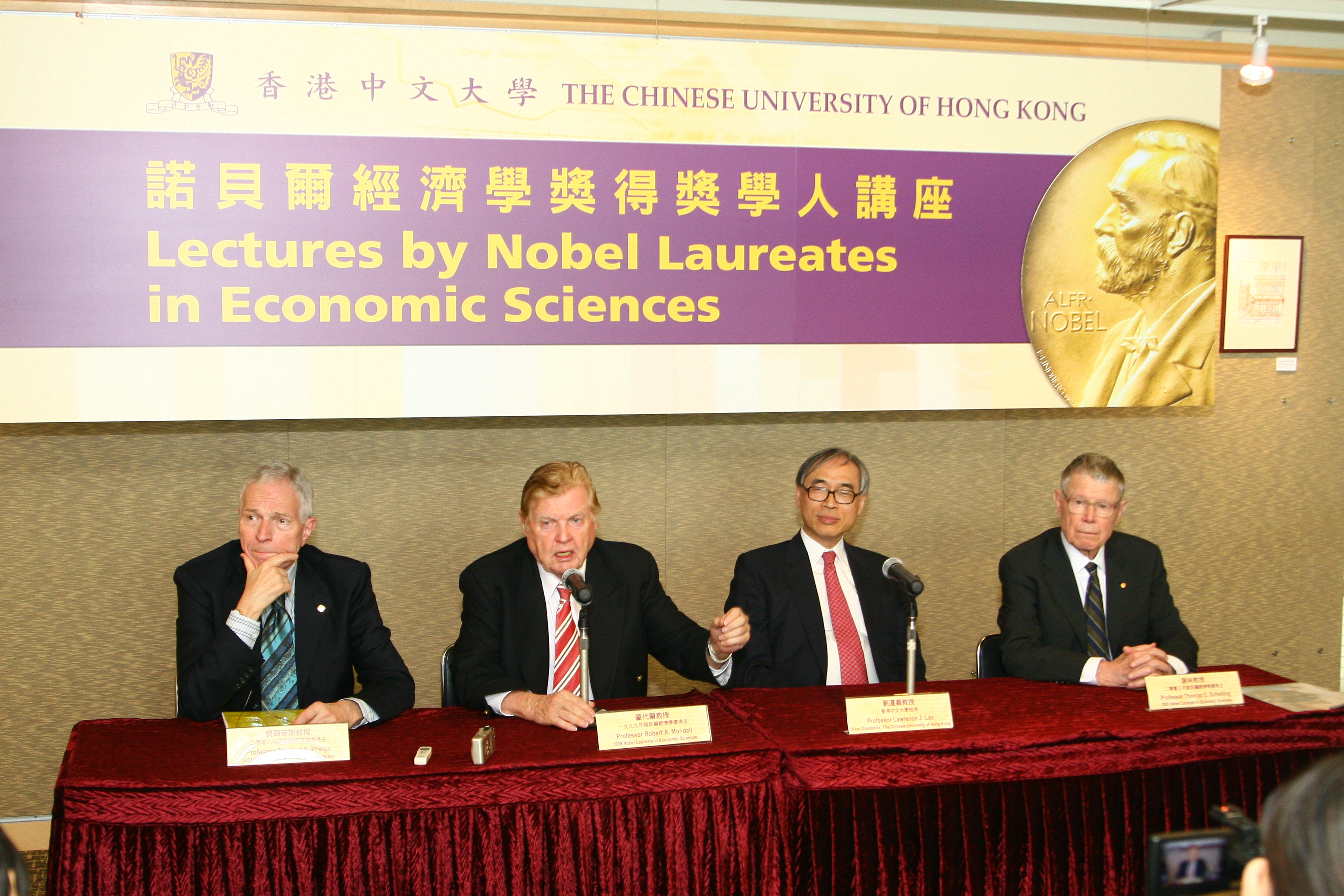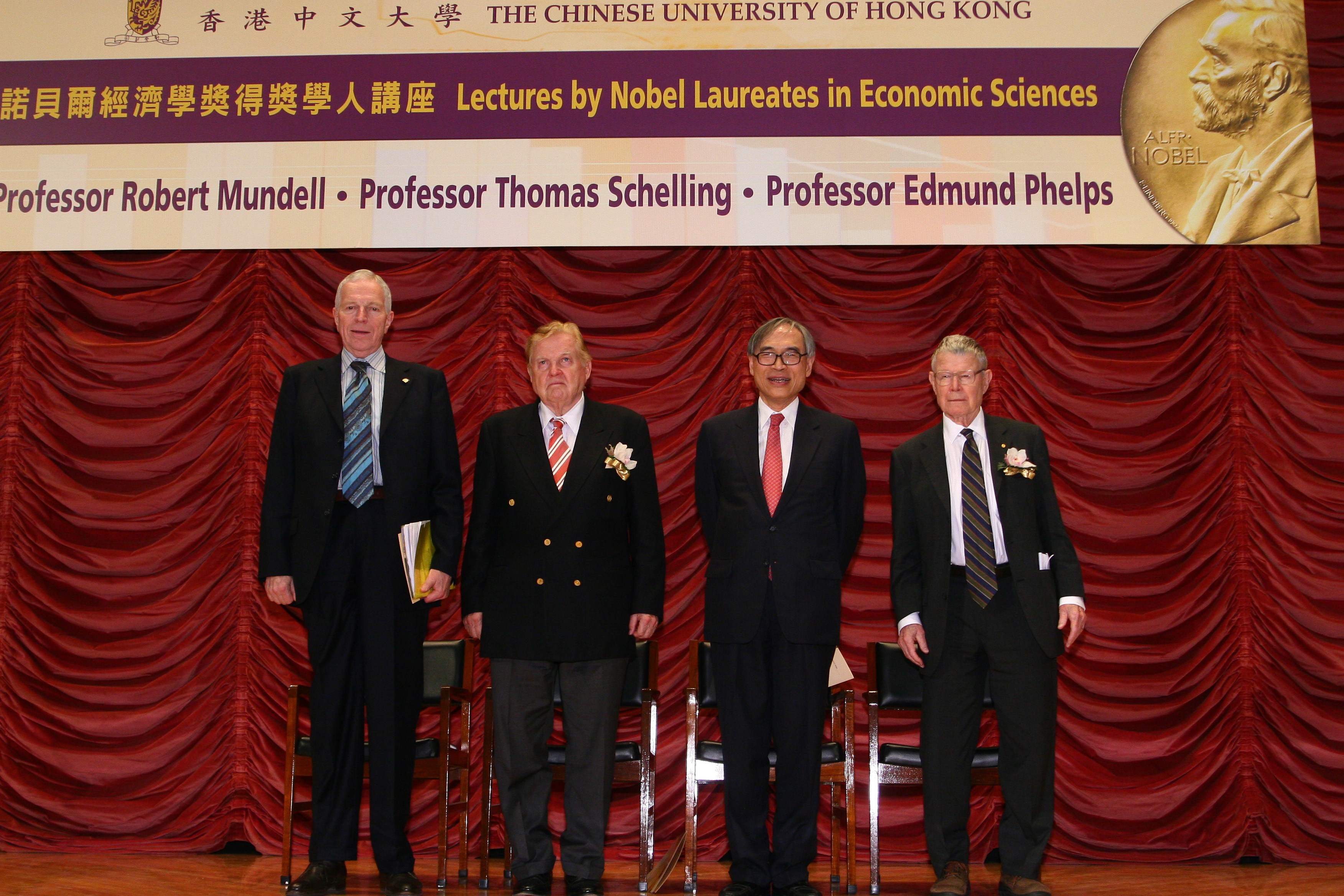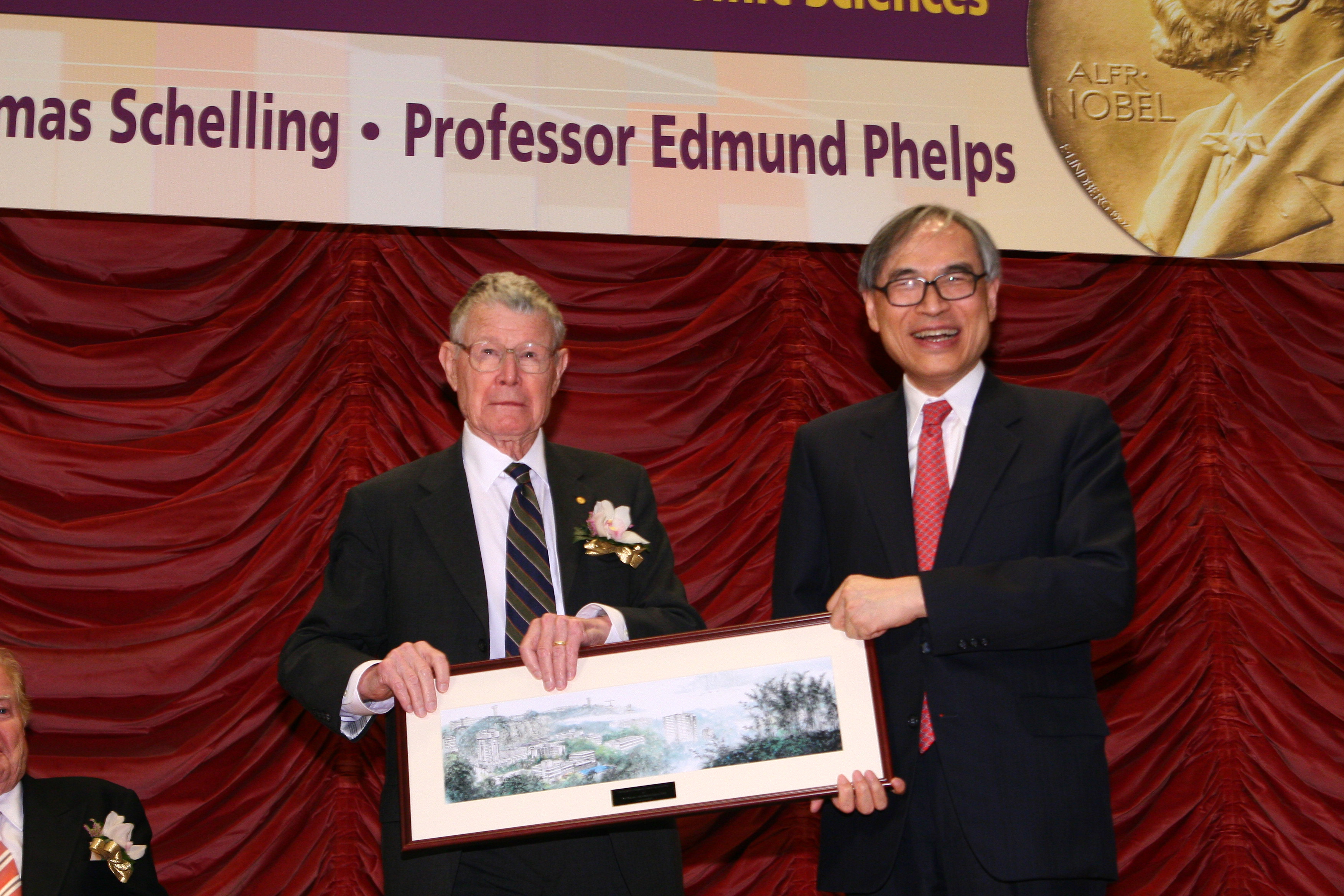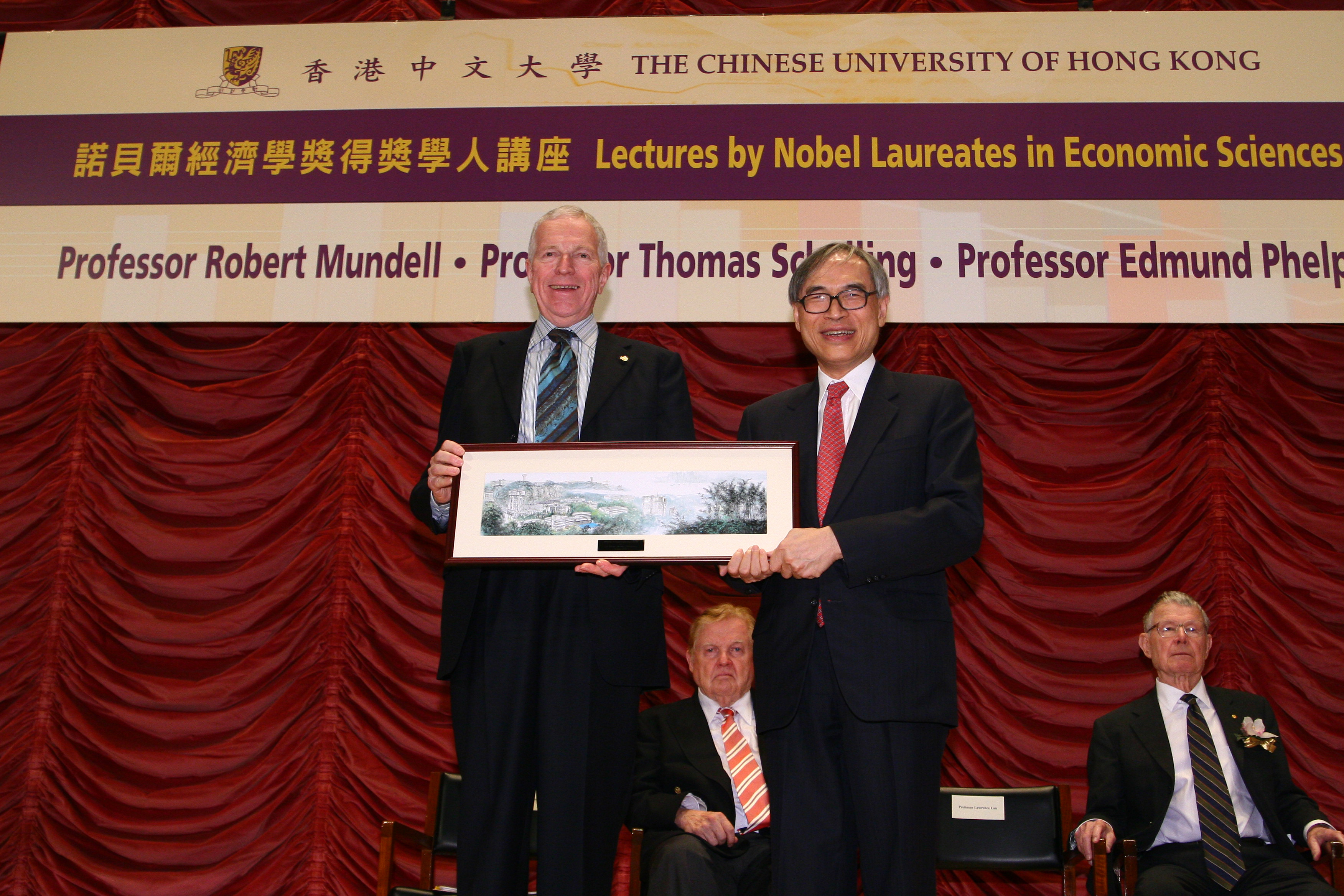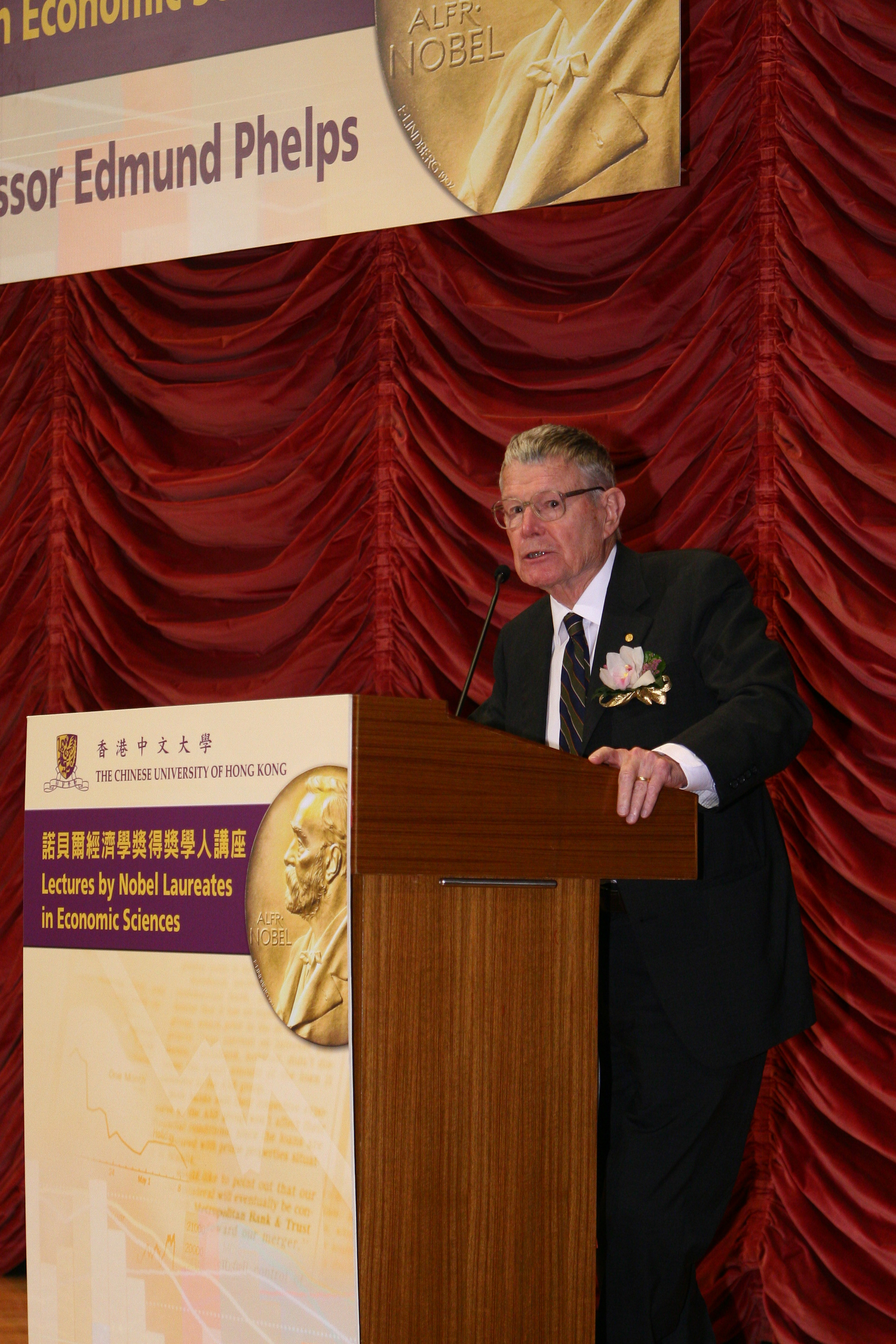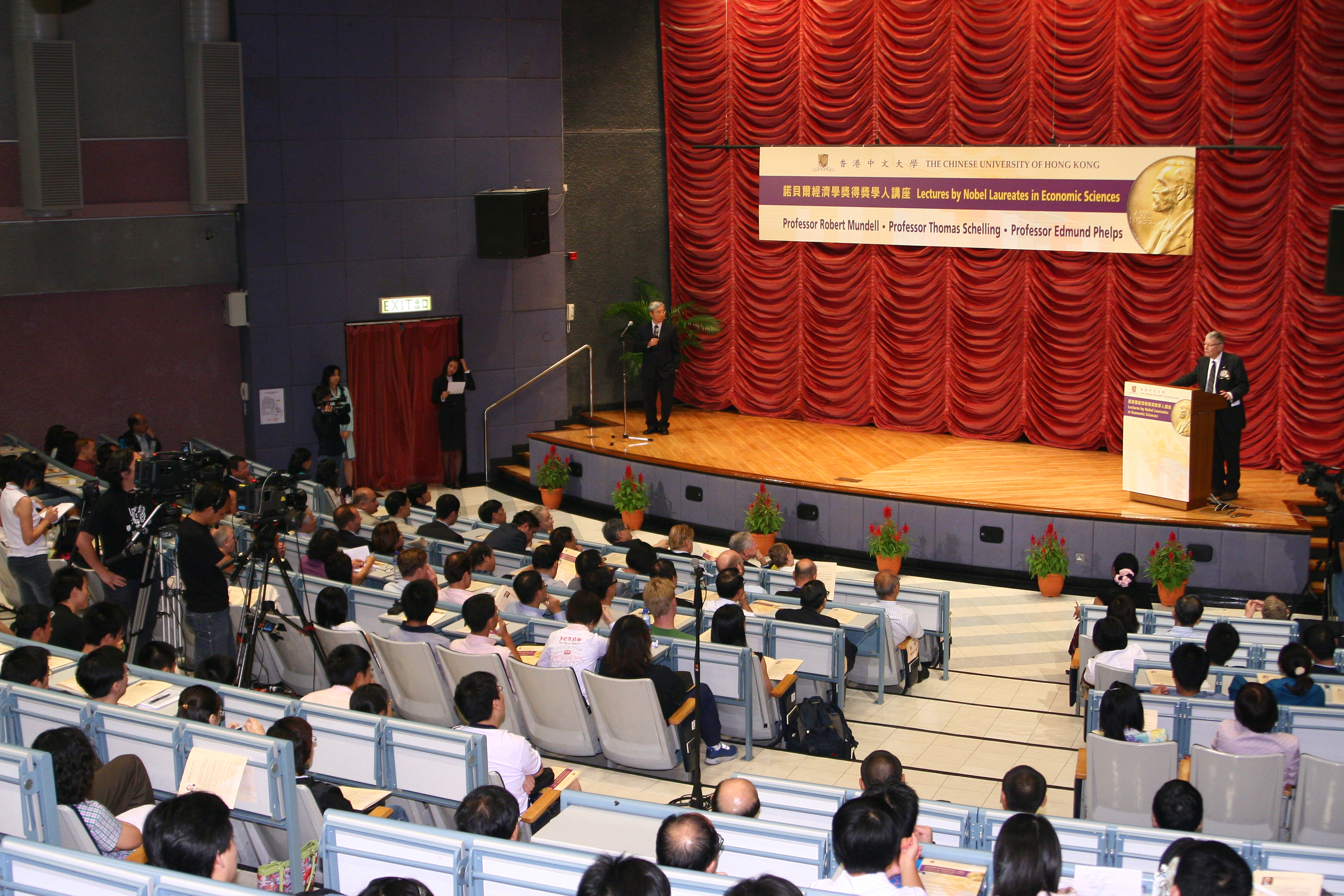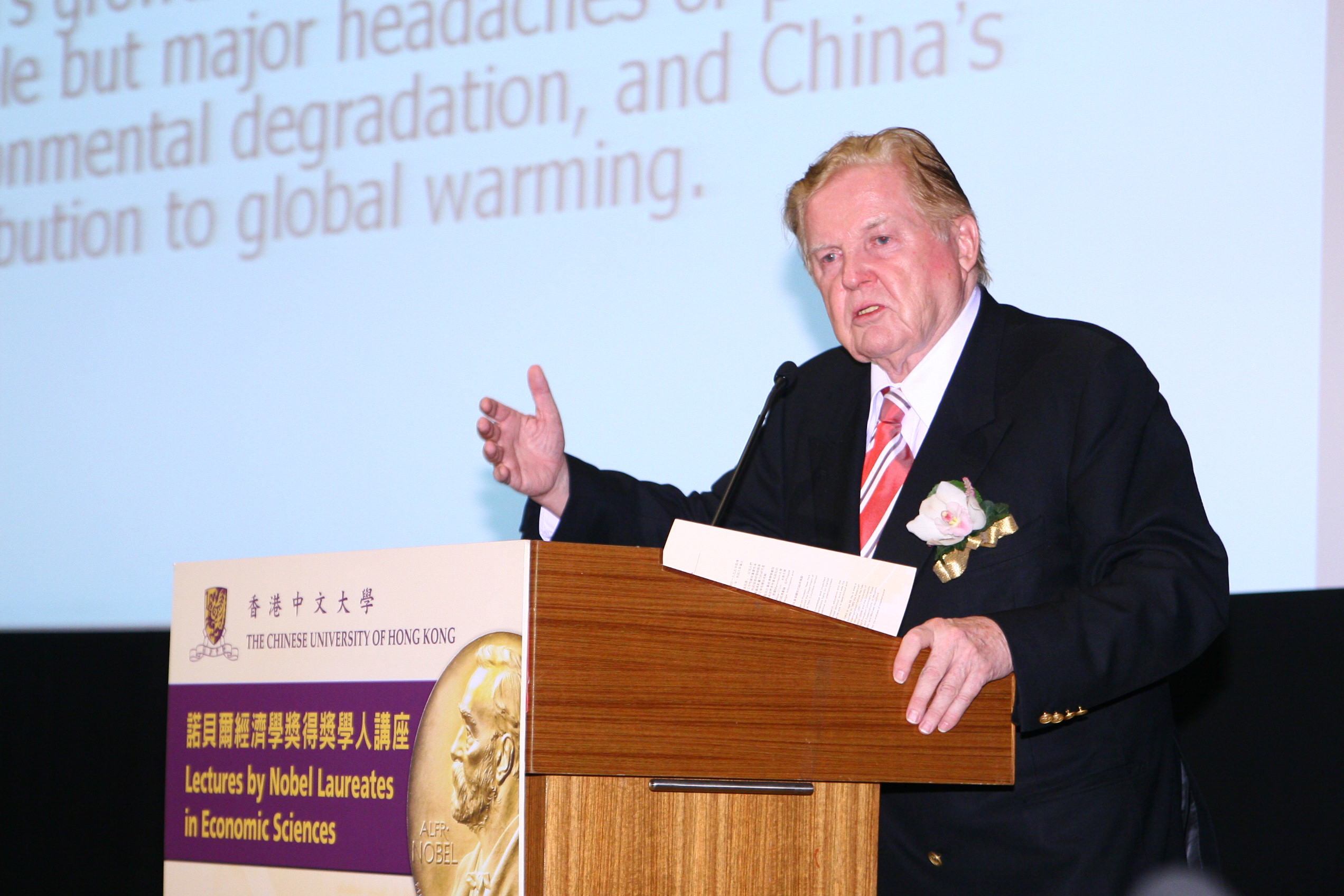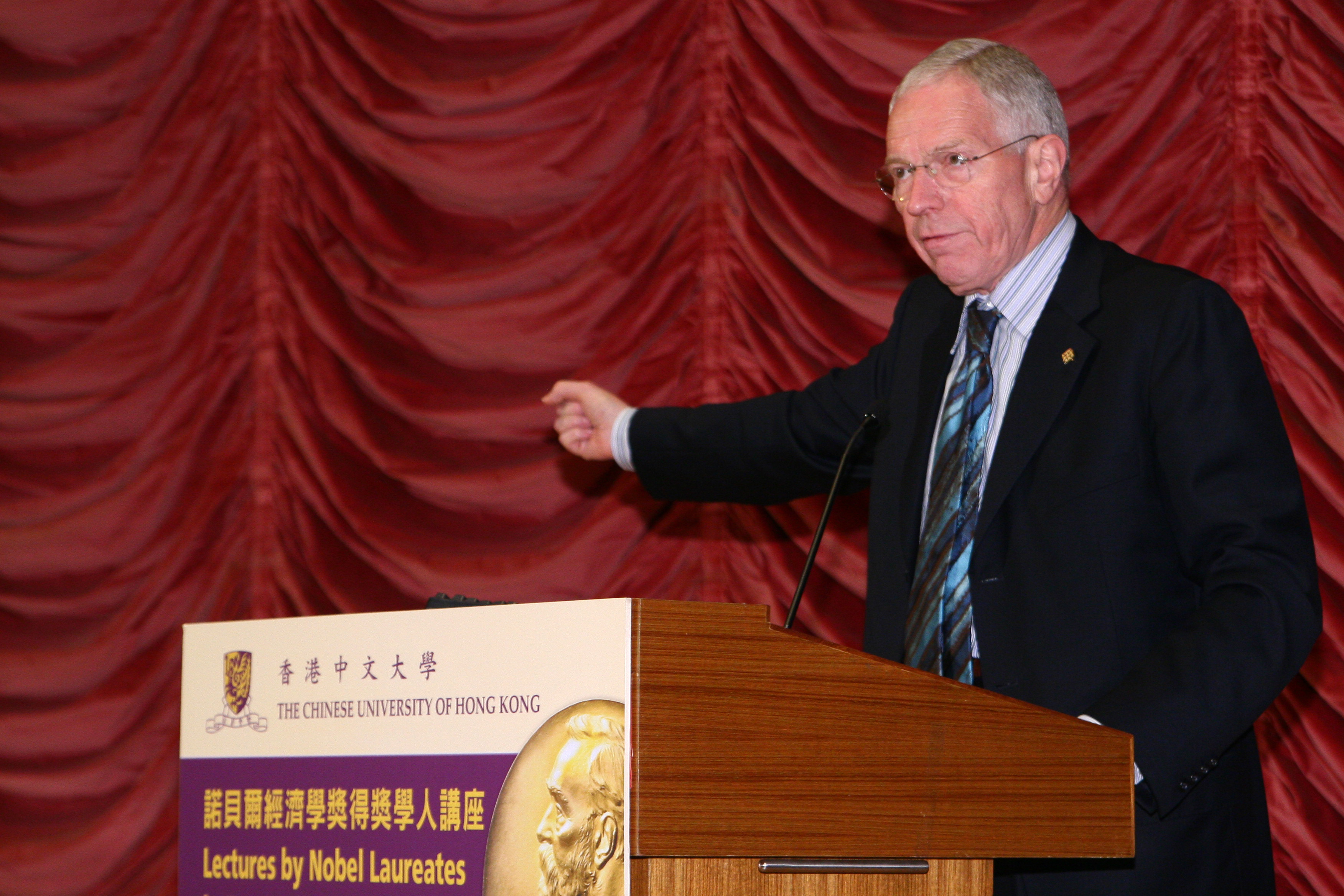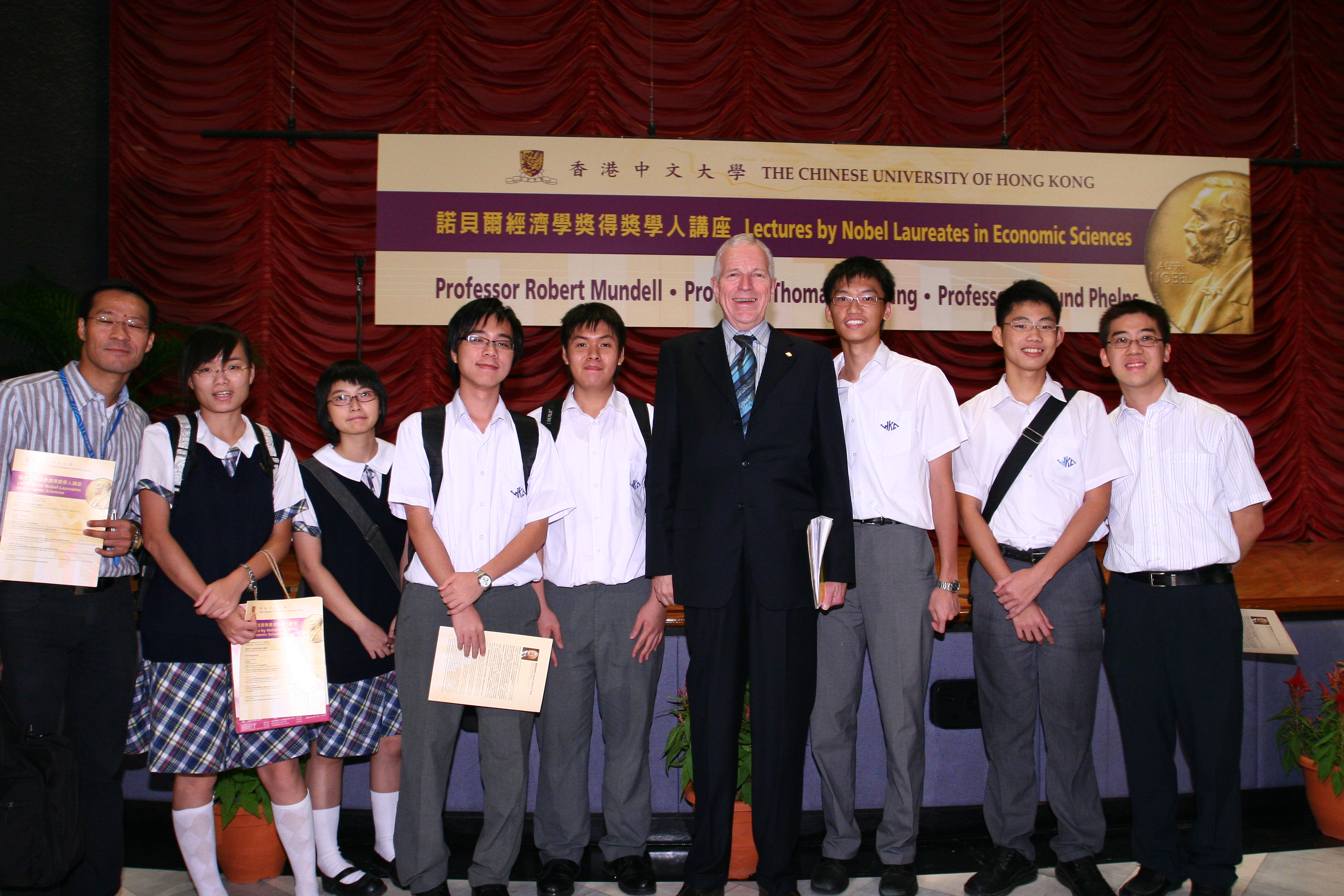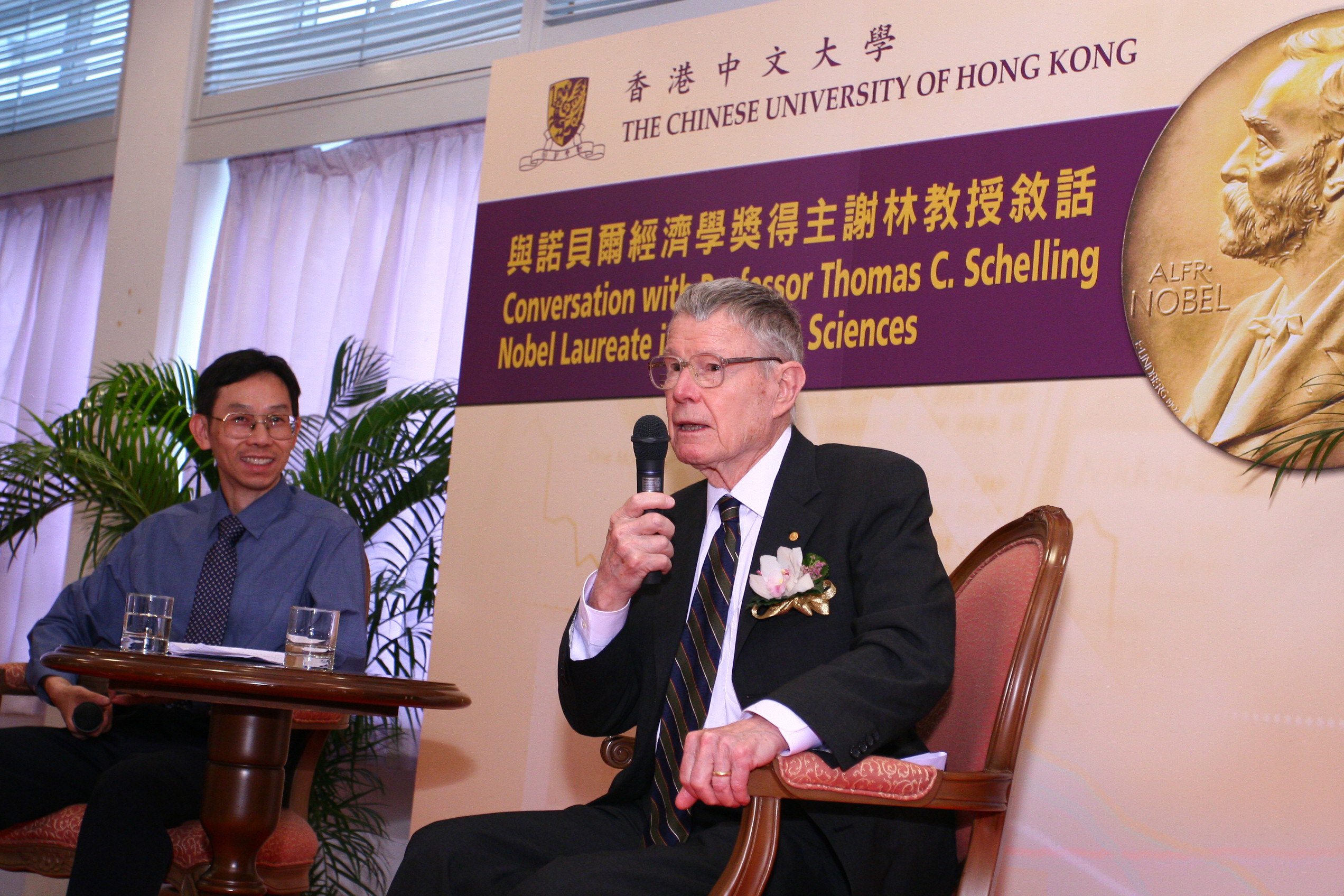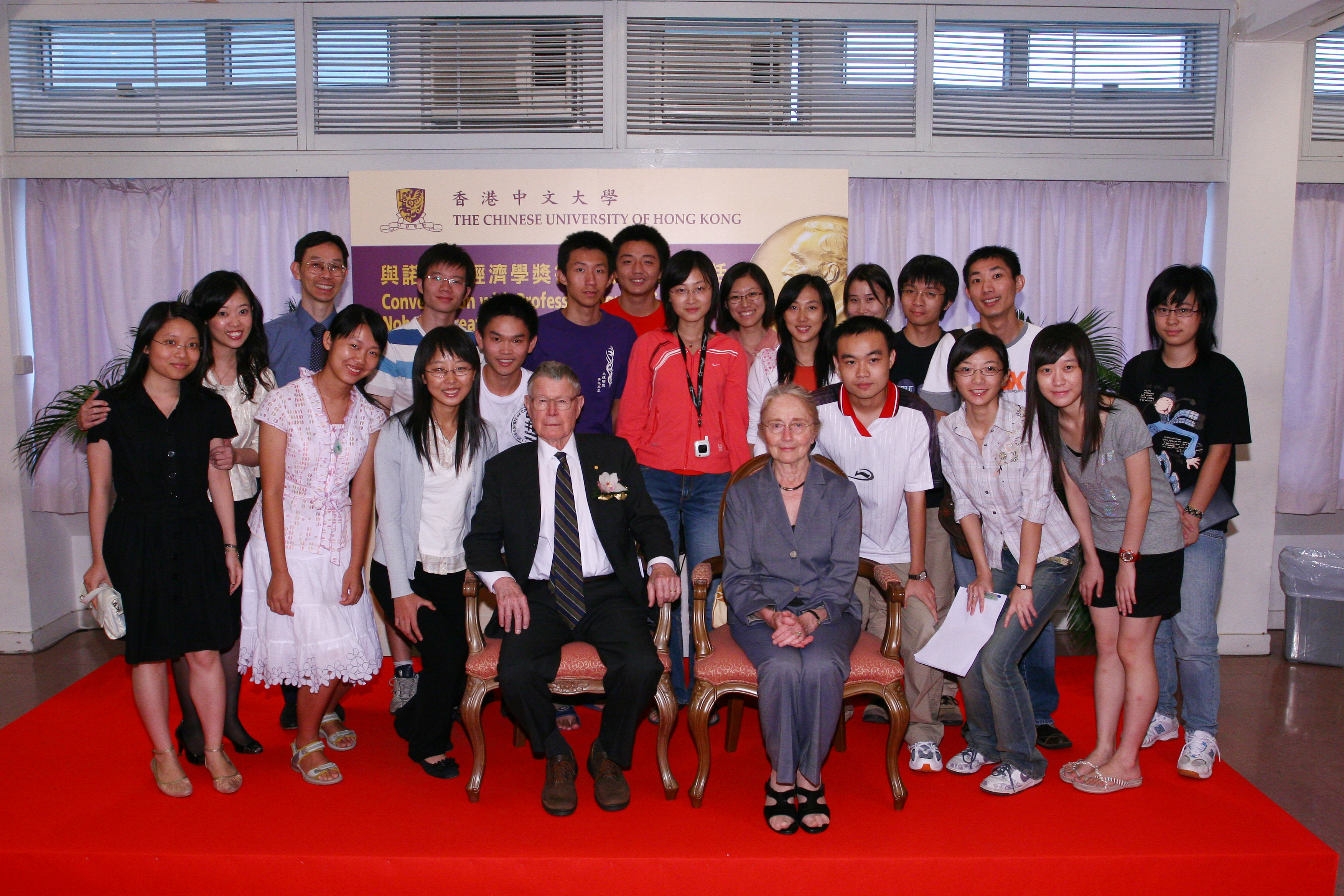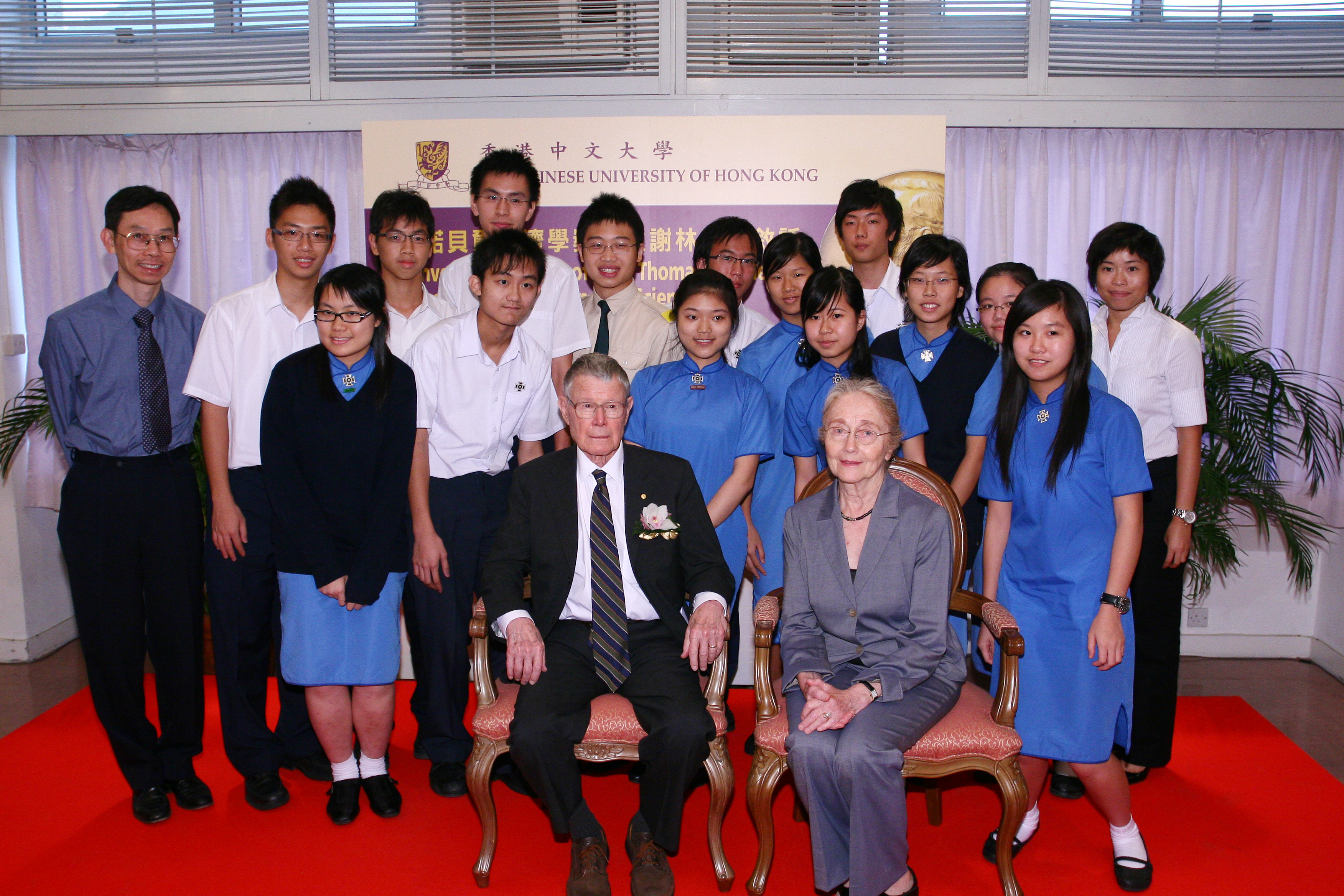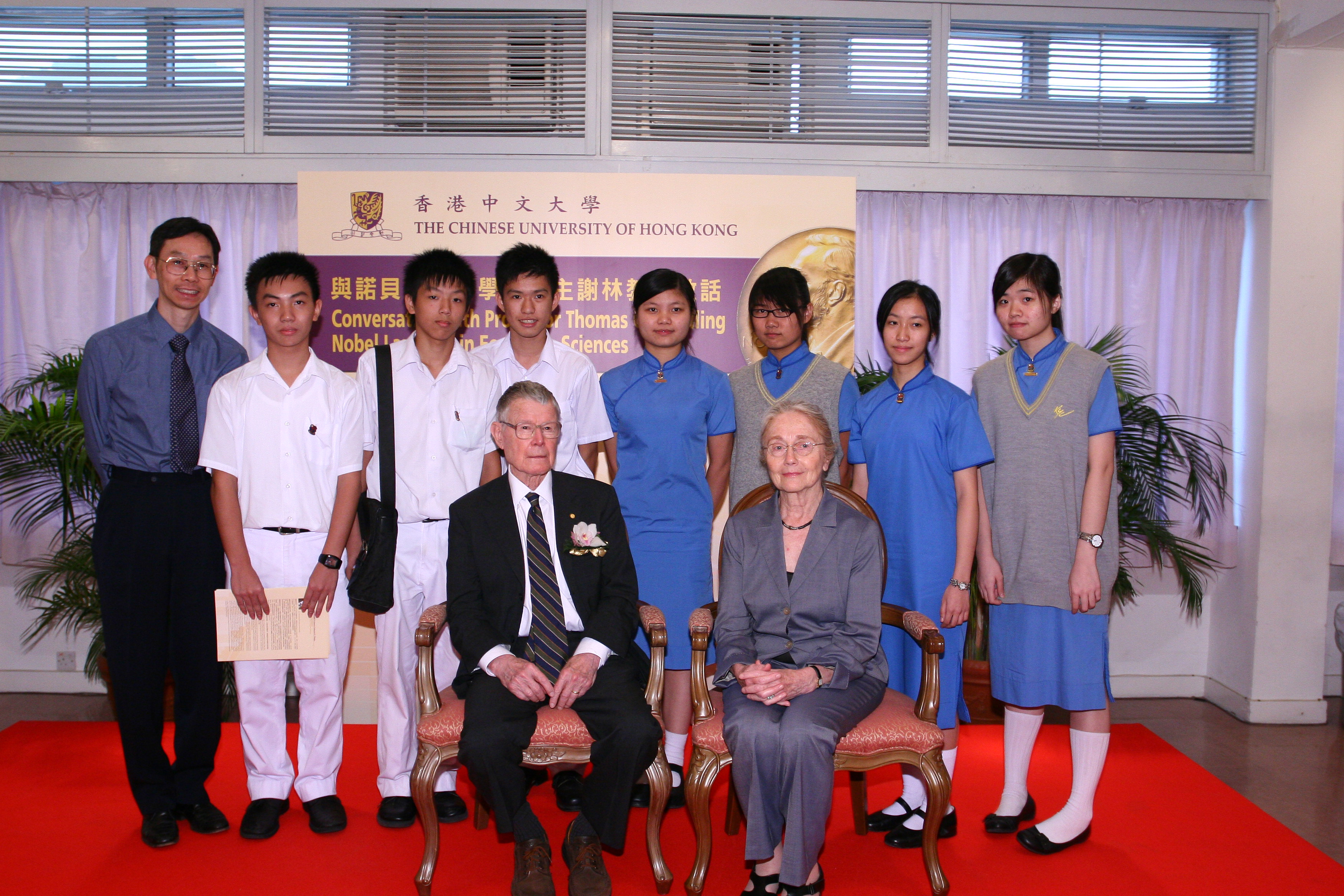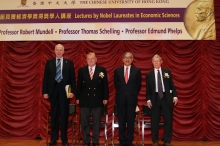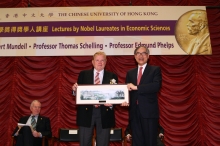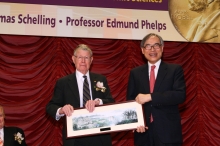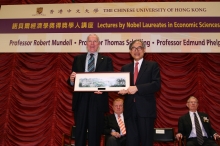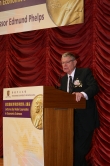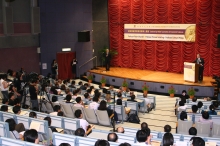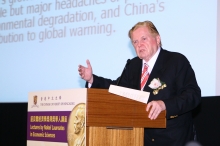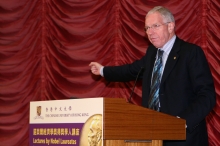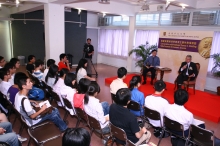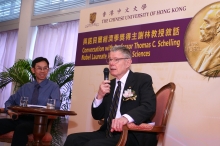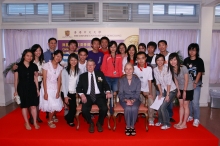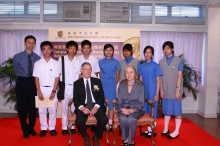CUHK
News Centre
CUHK Presents Lectures by Nobel Laureates in Economic Sciences
The Chinese University of Hong Kong (CUHK) presented public lectures by three world renowned Nobel Laureates today (19 September). The three Nobel Laureates are Professor Robert A. Mundell, 1999 Nobel Laureate in Economic Science; Professor Thomas C. Schelling, 2005 Nobel Laureate in Economic Science; and Professor Edmund S. Phelps, 2006 Nobel Laureate in Economic Science. Professor Thomas C. Schelling also attended a session to share his experience about learning with about a hundred local secondary and tertiary school students.
Professor Schelling delivered his lecture entitled “Managing Nuclear Proliferation”. He has published widely on military strategy, arms control, energy and environmental policy, nuclear proliferation and international trade. Against the backdrop of the nuclear arms race in the late 1950s, his book The Strategy of Conflict set forth his vision of game theory as a unifying framework for the social sciences. His insights have proven to be of great relevance for conflict resolution and efforts to avoid war. In 2005, he was awarded the Nobel Prize in Economic Sciences “for having enhanced our understanding of conflict and cooperation through game-theory analysis”.
Professor Mundell prepared one of the first plans for a common currency in Europe and is known as the father of the theory of optimum currency areas. He has also written extensively on the history of the international monetary system and played an early role in the founding of the Euro. Besides, he has been an adviser to a number of international agencies and organizations. He received the Nobel Prize in Economic Sciences in 1999 for “his analysis of monetary and fiscal policy under different exchange rate regimes and his analysis of optimum currency areas”. Professor Mundell spoke on “China’s RMB Exchange Rate Policy and the International Monetary System”.
Having received the Nobel Prize last year, Professor Phelps focused his lecture on “Keys to Endless Economic Development”. Professor Phelps’s seminal contributions to economics include introducing imperfect information and imperfect knowledge to macroeconomics. He pioneered the first generation of economic models of unemployment and inflation based on microfoundations, and was the first to stress the importance of reorganizing macroeconomic theory by revising the postulates of the neoclassical paradigm with regard to information and knowledge and to show how this could actually be done. His distinguished achievements have significant bearing not only on the development of macroeconomics in the past 30 years but also on popular contemporary researches.
Committed to promoting academic exchanges, CUHK has invited over 20 Nobel Laureates to deliver lectures on different disciplines of studies in recent years, bringing new ideas to the local academic arena, as well as broadening the international horizons of academics and students.
From left: Professor Edmund S. Phelps, 2006 Nobel Laureate in Economic Sciences Professor Robert A. Mundell, 1999 Nobel Laureate in Economic Sciences Professor Lawrence J. Lau, Vice-Chancellor, The Chinese University of Hong Kong Professor Thomas C. Schelling, 2005 Nobel Laureate in Economic Sciences


